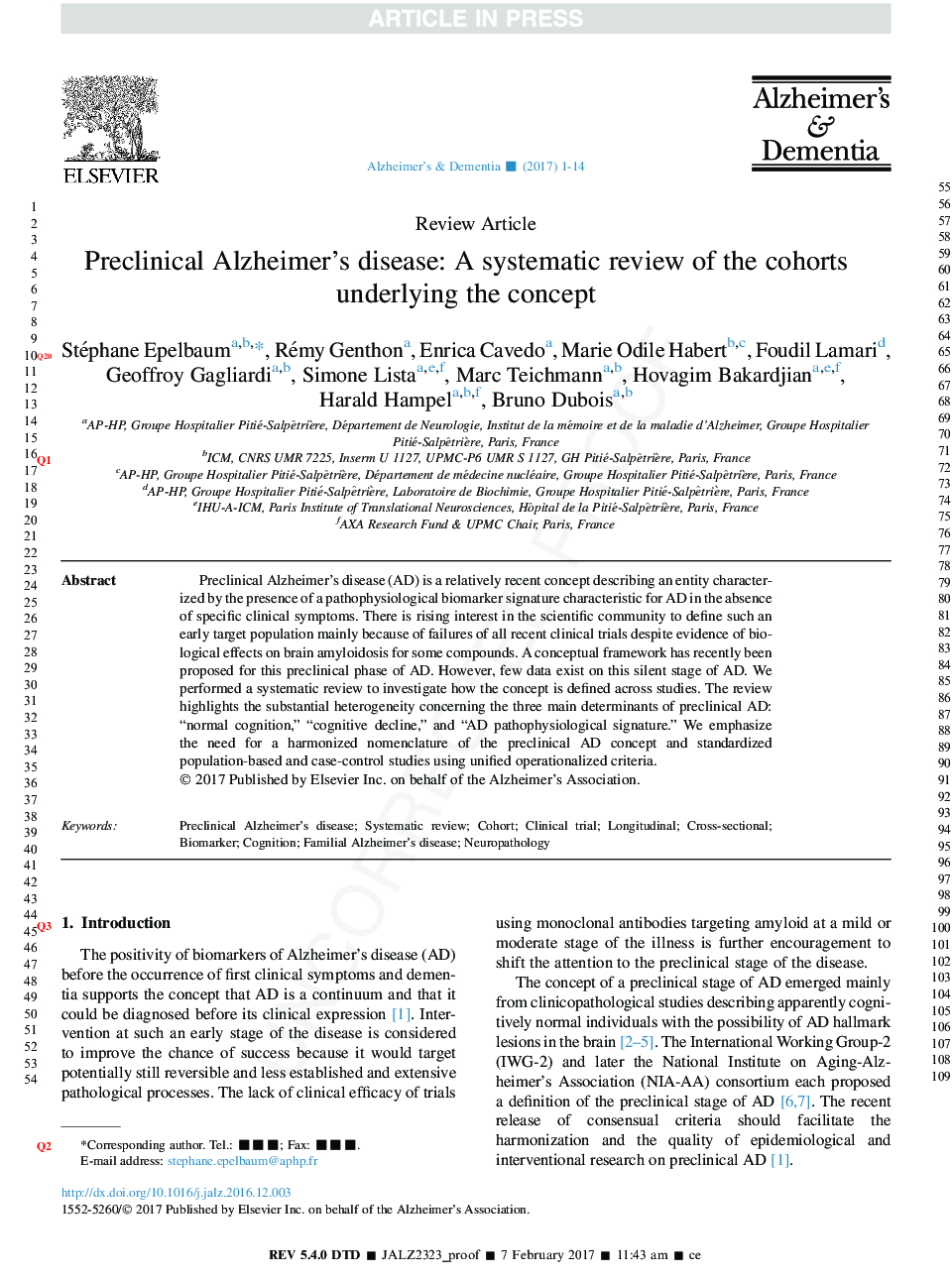| Article ID | Journal | Published Year | Pages | File Type |
|---|---|---|---|---|
| 5622468 | Alzheimer's & Dementia | 2017 | 14 Pages |
Abstract
Preclinical Alzheimer's disease (AD) is a relatively recent concept describing an entity characterized by the presence of a pathophysiological biomarker signature characteristic for AD in the absence of specific clinical symptoms. There is rising interest in the scientific community to define such an early target population mainly because of failures of all recent clinical trials despite evidence of biological effects on brain amyloidosis for some compounds. A conceptual framework has recently been proposed for this preclinical phase of AD. However, few data exist on this silent stage of AD. We performed a systematic review to investigate how the concept is defined across studies. The review highlights the substantial heterogeneity concerning the three main determinants of preclinical AD: “normal cognition,” “cognitive decline,” and “AD pathophysiological signature.” We emphasize the need for a harmonized nomenclature of the preclinical AD concept and standardized population-based and case-control studies using unified operationalized criteria.
Keywords
Related Topics
Life Sciences
Neuroscience
Neurology
Authors
Stéphane Epelbaum, Rémy Genthon, Enrica Cavedo, Marie Odile Habert, Foudil Lamari, Geoffroy Gagliardi, Simone Lista, Marc Teichmann, Hovagim Bakardjian, Harald Hampel, Bruno Dubois,
